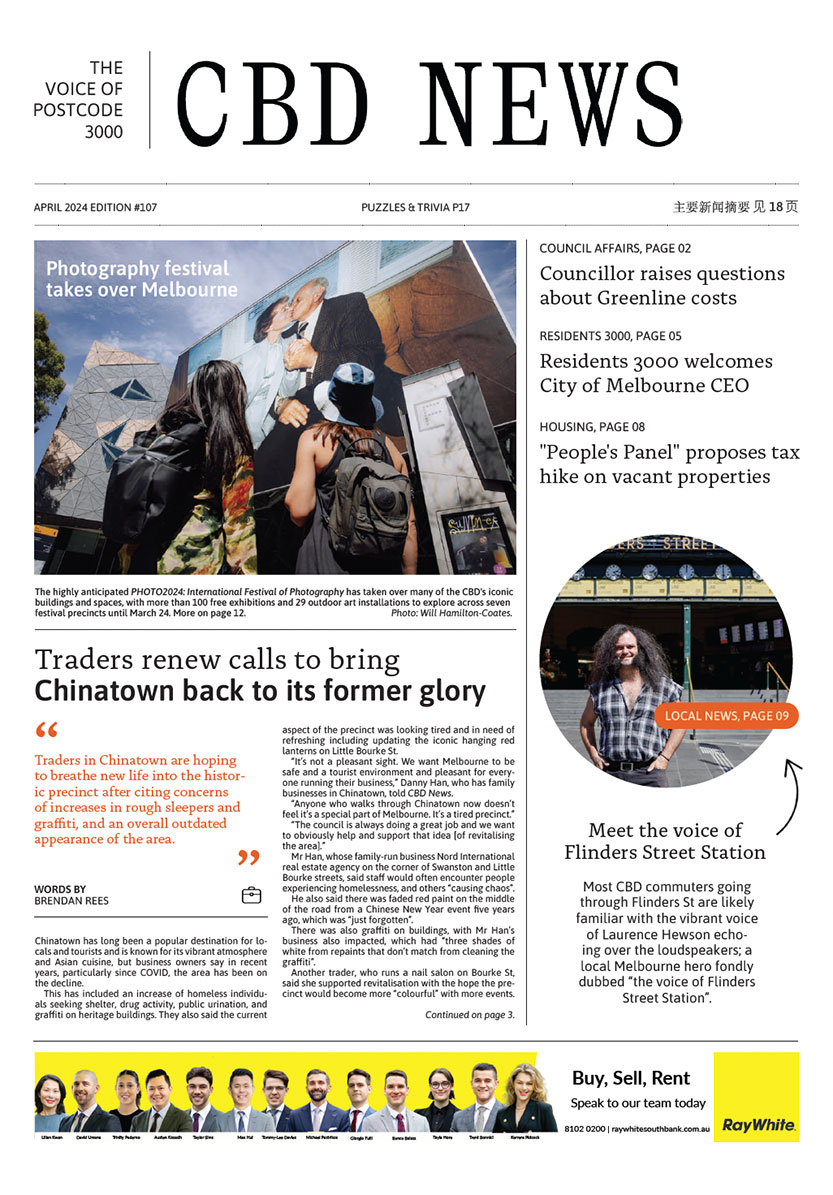Prize position
By Rhonda Dredge
The rat on the second floor might have bitten off more than he could chew when he set himself up as a critic in the Nicholas Building.
Although a vivid afternoon sun sometimes created visual illusions on the windows to the west, the city exerted a pressure beyond the mass of its built form. Slow groans and high shrills, van doors closing, repetitive chirps, cries, clashes and taps echo from within, muffling the chimes of St Paul’s.
Occasionally a man sleeps in the corner of the passage outside the critic’s office. Management is installing CCTV cameras to record the man’s dreams.
The other day the critic heard music come from behind a closed door. Soon words began pouring into his mind, prompting stray memories.
The rooms in the building have taken a serious slant on personal histories, he concluded, so that former functions are not forgotten and shapes reflect back on past glories.
More recently a sinuous art nouveau line has begun causing trouble with the delicate machinery of the critic’s textuality. He had no choice but to leave the confines of his textual world and confront this pseudo-critic on its own turf.
The evening was cold and great steamy clouds were shooting out of the grates in the pavement when the critic got down to ground level, making the building look as if it was about to blast off.
He lost the scent of something profound in the moist air then picked it up again as a poet climbed the stairs to the first floor. There was no use being critical. Any dubious off-the-cuff comments would be re-ordered and rearranged to make art.
On the seventh floor the scent grew stronger again, this time outside a room called Stella. The corridor was dark and the door closed but the critic sensed the presence of an elastic system for tying down meaning.
The words Brave Outsider had been chiselled by a master craftsman then scattered amongst his things so he had no expectations. At any moment rag-pickers would begin sifting through the debris of his mind in search of valuable fragments.
The door opened a crack while he was lurking. Out stepped a woman with an offer of tea. The building might have been trapped in an abstract grid called the city but perhaps a critic could re-invent himself, after all.
“Beetles and wasps are rare on Flinders Lane,” the critic remarked as he settled.
His hostess agreed.
After a short while she looked him in the eye.
He thought she was going to chastise him for failing to mention the source of his entomological comment. He had been to the launch of the Peter Porter Poetry prize in the Collected Works bookshop and Judith Beverage had won with a poem about stings.
“What about strays?” she asked instead.
He didn’t blink an eye.
“They belong here,” he said, confidently crossing his ankles.
“Good,” she replied, handing him a novel. “Emily Bitto has just won the Stella prize for The Strays.”
He took the book and got the distinct feeling that it was a work aimed directly at creatures like him.

Backloading across borders with Transcorp – navigating interstate moves with ease






 Download the Latest Edition
Download the Latest Edition